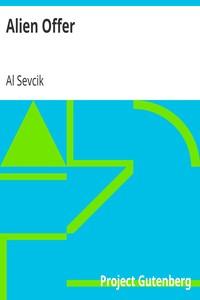Read this ebook for free! No credit card needed, absolutely nothing to pay.
Words: 64920 in 18 pages
This is an ebook sharing website. You can read the uploaded ebooks for free here. No credit cards needed, nothing to pay. If you want to own a digital copy of the ebook, or want to read offline with your favorite ebook-reader, then you can choose to buy and download the ebook.


: Conservation Reader by Fairbanks Harold W Harold Wellman - Natural resources; Forests and forestry United States
d of killing the young animals that they caught, they took them home and cared for them. So the little creatures became quite tame and grew up about the camps. The wild jungle fowls were the ancestors of the domestic hens which we find so useful. The wild cow was tamed in like manner, and made to supply milk in addition to food and clothing. The colts of wild horses and donkeys were captured and used for carrying loads. Sheep and goats were tamed in the same manner, and became the most valued possessions of some of the ancient peoples as they are of some peoples today. When they had learned to weave the wool of these animals into clothing and blankets, they had taken another step upon the long road which leads from ancient times down to us.
The horse, donkey, cow, and camel proved valuable in another way to the people who were learning to cultivate the ground. When harnessed to a crooked and sharpened stick they aided in breaking up the ground in which the young plants were growing.
And so the long years passed while the early people were discovering and making use of the things around them. They came to building better and more permanent homes, because they did not have to move from place to place in search of food. Where there were forests, wood served for their buildings. Where there were few trees, stone or mud bricks were used.
The brighter people learned to understand Nature more quickly than those who were dull. Each discovery of some new way of doing things aided them in making others, and in this way people finally came to have all the comforts of today. Those people less quick to learn the secrets of Nature, or those who lived in countries to which Nature had given little, gained few comforts and even now remain savage.
After our ancestors had learned to cultivate the soil, to use the minerals and the forests, and had tamed the animals and birds, they were still unsatisfied. They attempted to make the forces of Nature work for them. For a long time people made flour by crushing grain in a mortar. Next, two flat stones were used, one being made to turn upon the other by a handle. After that some animal, such as an ox or a horse, was harnessed to larger stones which, as they slowly turned, ground the grain. This was a great deal of work, and so some one thought of making the water tumbling over a ledge of rock grind the grain for them. The water was made to go over a water wheel. This wheel then made the millstones go around. It was a great deal easier.
Where there was no water power, wind was made to do the same work. A crude windmill gathered the power of the rapidly moving air. After wind and water had been forced to serve them, some one who had seen the lid of a tea kettle dancing up and down, thought of using steam. Then electricity, which in the form of jagged lightning had seemed so fearful a thing to the early people, was harnessed and made the greatest servant of all the forces of Nature.
The discovery of powder led to the making of guns so destructive that dozens of birds could be killed at one shot.
Some people became greedy and used all these wonderful discoveries to rob Nature. It seemed as if in some places all the wild life would be destroyed. Fires were allowed to burn the forest unhindered. The soil was made to produce crops until it grew poor.
HOW OUR NEEDS DIFFER FROM THOSE OF THE FIRST MEN
We have seen that the first men, like the other animals, depended upon the food that Nature supplied them, and when this was lacking they went hungry. When men had learned the use of fire they took the first step in making Nature serve them better than she did the lower animals. Today she works for us in so many ways that we can hardly name them all.
After the use of fire the next thing that men learned was to make better homes, to tame some of the wild animals, and to raise a part of their food supplies, instead of depending entirely upon what they could pick up here and there.
As the number of people increased, the question of securing food became more and more important. Would it not seem pretty hard to have to go out and hunt for your breakfast in the woods, or fields, or along the water? If you were alone you might find enough to eat, but if there were thousands of other people doing the same thing, you would probably go hungry. For this reason people began to cultivate berries, fruits, roots, and grains, and to take better care of their herds.
Free books android app tbrJar TBR JAR Read Free books online gutenberg
More posts by @FreeBooks


: Visions and Revisions: A Book of Literary Devotions by Powys John Cowper - Literature Modern History and criticism







